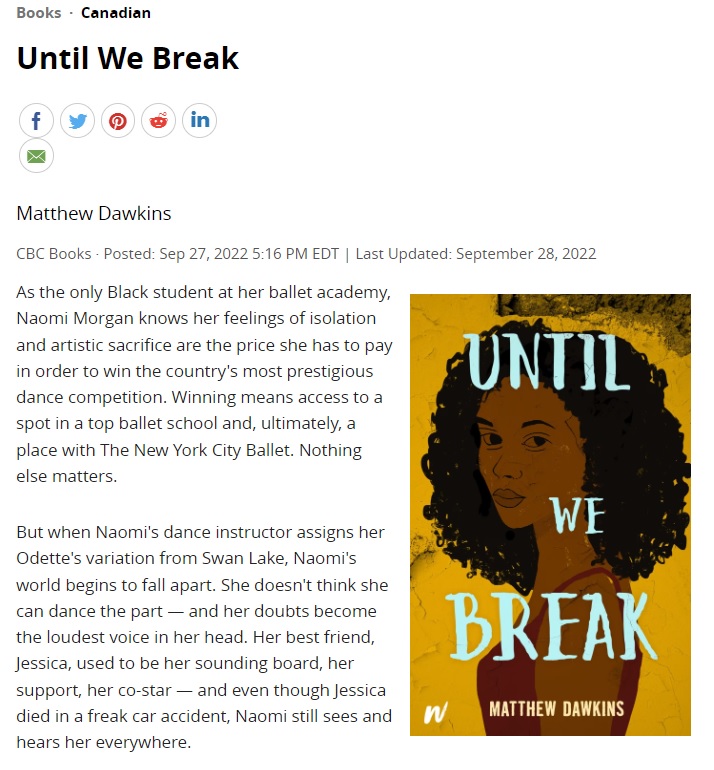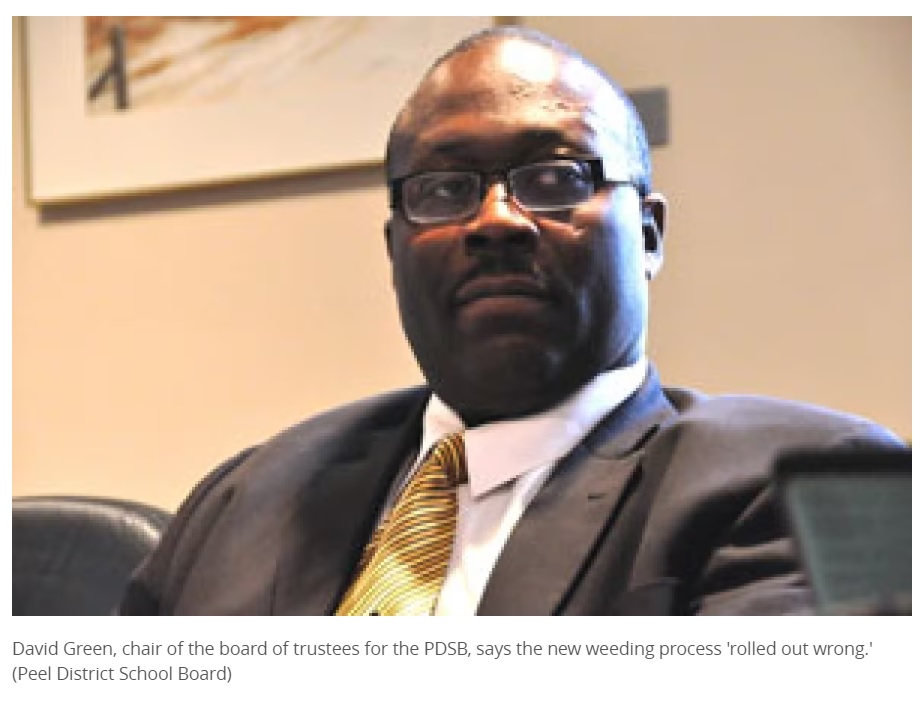Defeat hate by purging all books written before 2008!
The Peel District School Board near Toronto had its libraries remove all books written before 2008 as part of an “anti-racist and inclusive audit.”
The purge took place over the past year with students shocked to return to school to see their libraries with half-empty shelves.
Harry Potter, The Hunger Games and Roll of Thunder, Hear My Cry.
Those are all examples of books Reina Takata says she can no longer find in her public high school library in Mississauga, Ont., which she visits on her lunch hour most days.
In May, Takata says the shelves at Erindale Secondary School were full of books, but she noticed that they had gradually started to disappear. When she returned to school this fall, things were more stark.
“This year, I came into my school library and there are rows and rows of empty shelves with absolutely no books,” said Takata, who started Grade 10 last week.
She estimates more than 50 per cent of her school’s library books are gone.
In the spring, Takata says students were told by staff that “if the shelves look emptier right now it’s because we have to remove all books [published] prior to 2008.”
Takata is one of several Peel District School Board (PDSB) students, parents and community members CBC Toronto spoke to who are concerned about a seemingly inconsistent approach to a new equity-based book weeding process implemented by the board last spring in response to a provincial directive from the Minister of Education.
They say the new process, intended to ensure library books are inclusive, appears to have led some schools to remove thousands of books solely because they were published in 2008 or earlier.
Ontario Education Minister Stephen Lecce’s office said said he wrote to the board to halt the process in order to… fight anti-Semitism?
Prior to publication, neither Ontario Education Minister Stephen Lecce’s office, nor the Education Ministry, would comment on PDSB’s implementation of Lecce’s directive when contacted by CBC Toronto.
But in a statement Wednesday, the education minister said he has written to the board to immediately end this practice.
“Ontario is committed to ensuring that the addition of new books better reflects the rich diversity of our communities,” said Lecce.
“It is offensive, illogical and counterintuitive to remove books from years past that educate students on Canada’s history, antisemitism or celebrated literary classics.”
Incidentally, Holocaust denial was also banned last year in Canada to “fight anti-Semitism.”
Both the CBC and Global News would only criticize the book bans on the grounds they hurt the forward march of progress.
[…] Takata, who is of Japanese descent, is concerned weeding by publication date doesn’t follow that norm and will erase important history.
“I think that authors who wrote about Japanese internment camps are going to be erased and the entire events that went on historically for Japanese Canadians are going to be removed,” she said.
“That worries me a lot.”
Another complaint the CBC highlighted was a woman who said she was told the diary of Anne Frank was removed.
“Dianne Lawson, [a] member of Libraries not Landfills, told CBC Toronto weeding by publication date in some schools must have occurred in order to explain why a middle school teacher told her The Diary of a Young Girl by Anne Frank was removed from shelves,” the CBC reported.
Canadians concerned with their own history being thrown into the garbage can take a hike.
“Books published prior to 2008 that are damaged, inaccurate, or do not have strong circulation data (are not being checked out by students) are removed,” [the PDSB said in a statement to CBC Toronto].
If damaged books have strong circulation the board says they can be replaced regardless of publication date, and older titles can stay in the collection if they are “accurate, serve the curriculum, align with board initiatives and are responsive to student interest and engagement.”
“The Peel District School Board works to ensure that the books available in our school libraries are culturally responsive, relevant, inclusive, and reflective of the diversity of our school communities and the broader society,” said the board.
Inclusivity, of course, means purging everything which could be considered racist, politically incorrect (aka technically correct) or far-right.
In that context, purging everything written before 2008 makes perfect sense (though they’re probably going to have push the date up to 2016 or so in the near future).
The CBC shared the photo below showing some of the empty shelves after the purge. The book in the center-right is “Until We Break” by Jamaican Canadian author Matthew Dawkins, which is about overcoming white racism.


It has only 12 reviews on Amazon.
CBC’s report continues:
[PDSB’s] Directive 18 instructs the board to complete a diversity audit of schools, which includes libraries.
“The Board shall evaluate books, media and all other resources currently in use for teaching and learning English, History and Social Sciences for the purpose of utilizing resources that are inclusive and culturally responsive, relevant and reflective of students, and the Board’s broader school communities,” reads the directive.
PDSB’s “equitable curation cycle” is described generally in the board document as “a three-step process that holds Peel staff accountable for being critically conscious of how systems operate, so that we can dismantle inequities and foster practices that are culturally responsive and relevant.”
First, teacher librarians were instructed to focus on reviewing books that were published 15 or more years ago — so in 2008 or earlier.
Then, librarians were to go through each of those books and consider the widely-used “MUSTIE” acronym adapted from Canadian School Libraries. The letters stand for the criteria librarians are supposed to consider, and they include:
Misleading – information may be factually inaccurate or obsolete.
Unpleasant – refers to the physical condition of the book, may require replacement.
Superseded – book been overtaken by a new edition or a more current resource.
Trivial – of no discernible literary or scientific merit; poorly written or presented.
Irrelevant – doesn’t meet the needs and interests of the library’s community.
Elsewhere – the book or the material in it may be better obtained from other sources.The deadline to complete this step was the end of June, according to the document.
Step two of curation is an anti-racist and inclusive audit, where quality is defined by “resources that promote anti-racism, cultural responsiveness and inclusivity.” And step three is a representation audit of how books and other resources reflect student diversity.
The purged books were ordered to be thrown into the trash or recycled:
When it comes to disposing of the books that are weeded, the board documents say the resources are “causing harm,” either as a health hazard because of the condition of the book or because “they are not inclusive, culturally responsive, relevant or accurate.”
For those reasons, the documents say the books cannot be donated, as “they are not suitable for any learners.”
A PDSB spokesperson said the board supports its schools “in the disposal of books in a responsible manner by following Peel Region’s recycling guidelines.” Peel Region allows for the recycling of book paper, as long as hard covers and any other plastics are removed first and put in the garbage.
[…] CBC Toronto recently reviewed a recording of a May 8 board committee meeting focused on the new equitable weeding process. In it, trustee Karla Bailey noted “there are so many empty shelves,” when she walks into schools.
“When you talk to the librarian in the library, the books are being weeded by the date, no other criteria,” Bailey told the committee.
“That is where many of us have a real issue. None of us have an issue with removing books that are musty, torn, or racist, outdated. But by weeding a book, removing a book from a shelf, based simply on this date is unacceptable. And yes, I witnessed it.”

Bernadette Smith, superintendent of innovation and research for PDSB, is heard responding on the recording, saying it was “very disappointing” to hear that, because she said that’s not the direction the board is giving in its training for the process.
Banning “racist” books is just fine but kids need to learn about the Holocaust and Japanese internment.
Trustee and chair of the board, David Green, told CBC Toronto the weeding process itself “rolled out wrong.”
That’s why he says trustees briefly paused the process until the board could get a better understanding of what was actually going on.

A motion was passed at a May 24 board meeting to ensure that, going forward, those weeding books during the anti-racist and inclusive audit in the second phase of the curation cycle would need to document the title and reason for removal before any books were disposed of.
“We have to make sure that we are meeting the needs of the students and not just rolling something out because we were told to do it,” said Green.
When it comes to removing all books published in 2008 or earlier, Green said the board of trustees has heard that, too.
“We have asked the Director [of Education] again to make sure that if that is taking place, then that is stopped, and then the proper process is followed,” he said.
Green also said they have plans to communicate with parents about the weeding process.
In the meantime, students like Takata are left with half-empty shelves and questions about why they weren’t consulted about their own libraries.
“No one asked for our opinions,” she said. “I feel that taking away books without anyone’s knowledge is considered censorship.”
In short, after a bit of polish, the process will continue.
As George Orwell wrote in 1984: “Every record has been destroyed or falsified, every book has been rewritten, every picture has been repainted, every statue and street and building has been renamed, every date has been altered. And that process is continuing day by day and minute by minute. History has stopped. Nothing exists except an endless present in which the Party is always right.”
Follow InformationLiberation on Twitter, Facebook, Gab, Minds and Telegram.
Related posts:
Views: 0
 RSS Feed
RSS Feed

















 September 18th, 2023
September 18th, 2023  Awake Goy
Awake Goy  Posted in
Posted in  Tags:
Tags: 
















